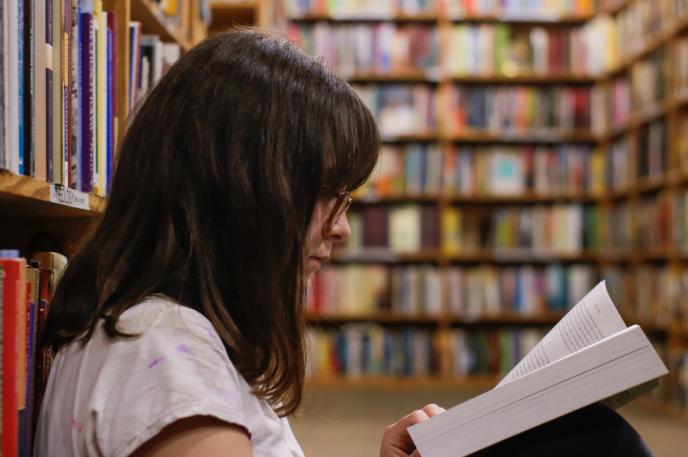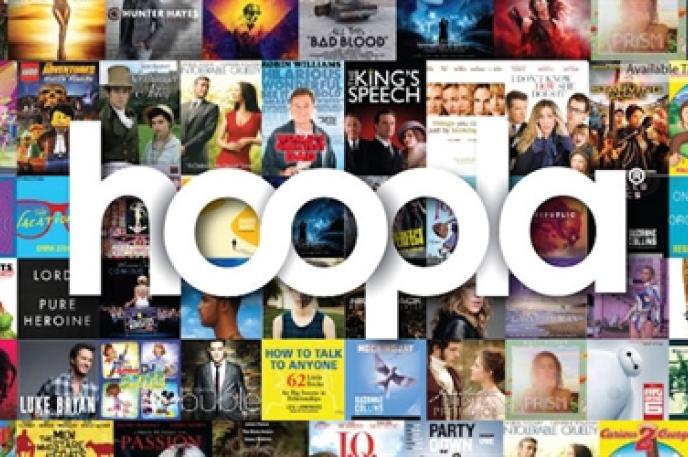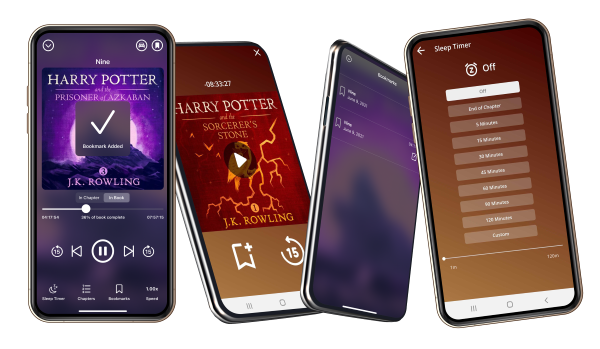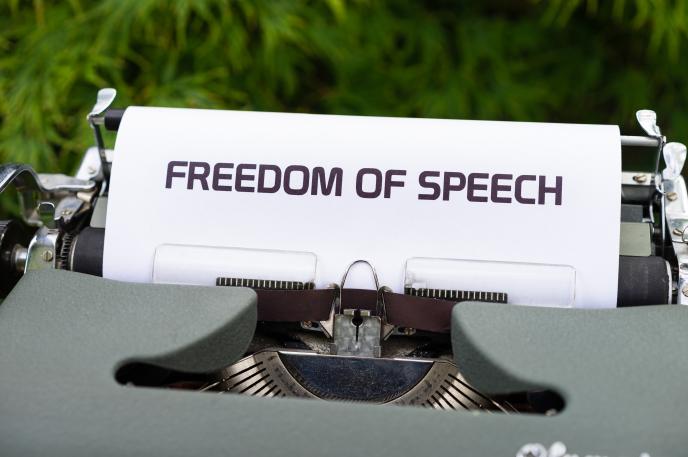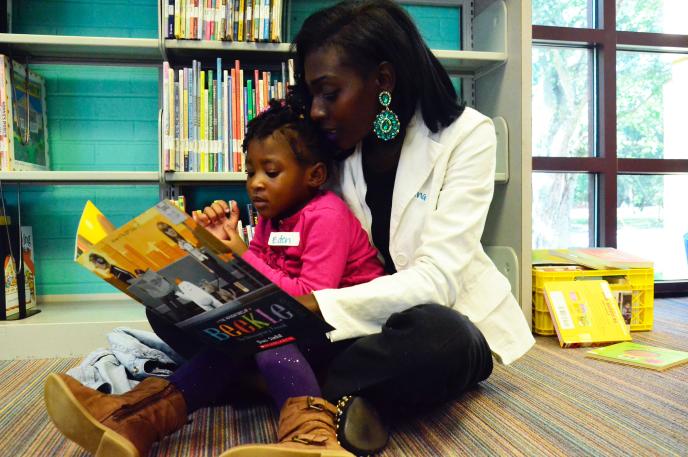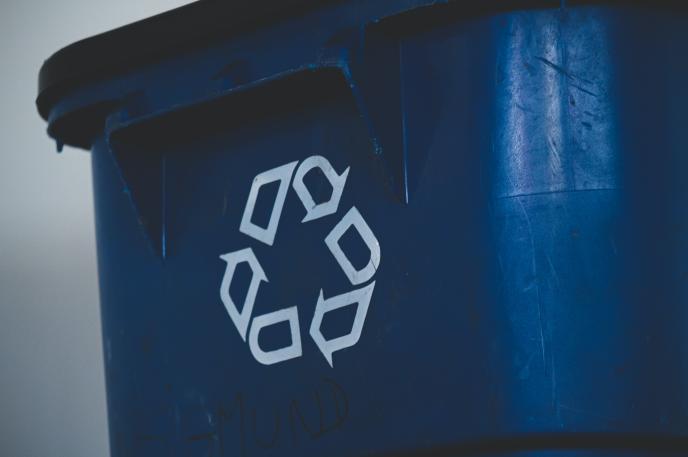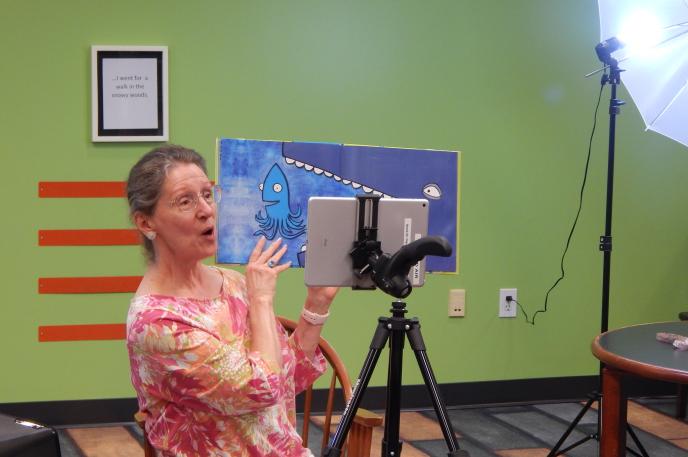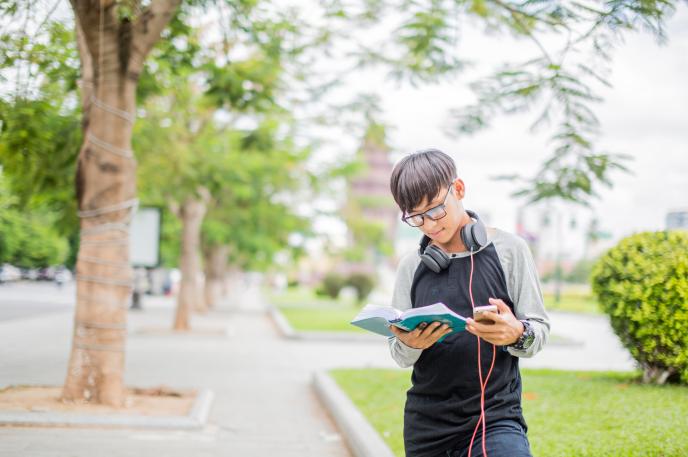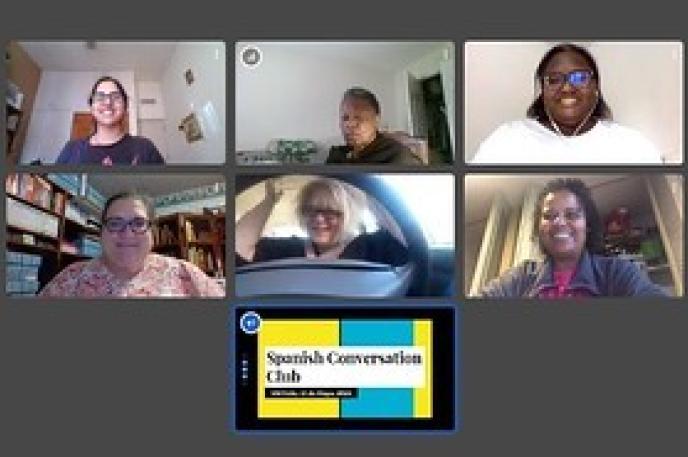
Join in adult activities and programs during Summer Break
July 8, 2021
Desplácese hacia abajo para ver la versión en español
Welcome to Week 7 of Summer Break! Did you think Summer Break with Charlotte Mecklenburg Library is just for children and teens? Summer Break is a program for all ages! Adults are enjoying extra-relaxing reads, exploring and playing in their world, creating, writing, and giving, all summer long. New opportunities for learning are everywhere. Let the Library give you some inspiration for all those activities.

When you register for Summer Break, you will find activities to complete to earn virtual badges. In addition to reading, some of our activity ideas include:
Create:
- Invent a new sandwich
- Complete a crossword puzzle
- Take some interesting photos of your neighborhood
Write
- Write in a journal
- Take a course or check out an eBook on fiction writing using Library resources
- Write a new ending to your favorite book or story
Play
- Ride a bike or take a walk
- Color with a family member
- Play a video game online with a friend
Explore
- Book a librarian for 1-on-1 help with technology, business, or non-profit assistance
- Download a free song from Freegal
- Go geocaching at a local park
Give
- Donate food or supplies to your local animal shelter
- Organize a neighborhood cleanup
- Video chat a friend or family member to cheer them up

Programs for Adults
The Library offers hundreds of programs on dozens of topics. You are sure to find something to interest you! Here is a sampling of activities for adults being offered.
Multicultural Book Club - The Multicultural Book Club meets on the fourth Thursday of each month at 6:30 p.m. to discuss the best novels from the world's many cultures.
Independence Library History's Mysteries - Offered on the last Wednesday of the month, History's Mysteries is presented by Independence Regional Library staff. Come discover humanity's hidden past and explore a historical mystery.
Basic Computer Skills - Learn to use the keyboard and mouse and get a basic overview of computer terms and concepts in this class for people with little or no previous computer experience.
Visit our calendar for even more upcoming virtual programs that you can access from home! Choose “Select tag(s)” on the right to narrow down by age.
The Summer Break program is wonderful for all ages! We have activities and book suggestions for babies/children, teens and adults.
Comments? Questions?
Are you having problems with the Summer Break website or your account? Do you have questions about the program? Feel free to call your local library for assistance or email [email protected].
The 2021 Summer Break program is brought to you by Charlotte Mecklenburg Library. Additional support comes from Wendy’s and the Charlotte Mecklenburg Library Foundation with Spanish translations sponsored by Norsan Media.
¡Bienvenido a la semana 7 del Programa de vacaciones de verano!
¿Creíste que el Programa de vacaciones de verano con la biblioteca Charlotte Mecklenburg era solo para niños y adolescentes? ¡El Programa de vacaciones de verano es para todas las edades! Los adultos disfrutan de lecturas sumamente relajantes, exploran y juegan en su mundo, crean, escriben y hacen sus aportes durante todo el verano. Las oportunidades para aprender están en todas partes. Permite que la biblioteca te inspire para hacer todas esas actividades.
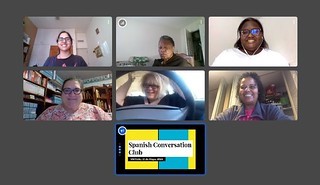
Al registrarte en el Programa de vacaciones de verano, encontrarás actividades para completar y ganar medallas virtuales. Además de la lectura, algunas de nuestras ideas de actividades son las siguientes:
Crear:
- Inventa un nuevo sándwich
- Completa un crucigrama
- Saca fotos interesantes de tu vecindario
Escribe
- Escribe un diario personal
- Haz un curso o retira un libro electrónico sobre escritura de ficción usando los recursos de la biblioteca
- Escribe un nuevo final para tu libro o historia favorita
Juega
- Monta en bicicleta o da una caminata
- Colorea junto con un miembro de tu familia
- Juega a algún videojuego en línea con un amigo
Explora
- Reserva a un bibliotecario para recibir asistencia personalizada sobre tecnología, negocios u organizaciones sin fines de lucro
- Descarga una canción gratuita de Freegal
- Juega al geocaching en un parque local
Da
- Dona alimentos o suministros al refugio de animales local
- Organiza una jornada de limpieza del vecindario
- Haz una videoconferencia en línea con un amigo o un familiar para alegrarlo

Programas para adultos
La biblioteca ofrece cientos de programas basados en docenas de temas. ¡Seguro que encontrarás algo que te interese! Esta es solo una muestra de las actividades para adultos que se ofrecen.
Club de lectura multicultural: El Club de lectura multicultural se reúne mensualmente para hablar sobre las mejores novelas de todas las culturas del mundo. Participa con nosotros del Club de lectura multicultural el cuarto jueves de cada mes a las 6:30.
Misterios de la historia en la Biblioteca Independence: El último miércoles de cada mes, el equipo de la Biblioteca Independence Regional presenta Misterios de la historia. Ven a descubrir el pasado oculto de la humanidad y a explorar misterios históricos.
Habilidades informáticas básicas: Aprende a usar el teclado y el ratón y obtén un panorama básico de términos y conceptos informáticos en esta clase destinada a personas con poca o ninguna experiencia en computación.
Visita nuestro calendario para ver los próximos programas virtuales, a los que puedes acceder desde tu casa. Elige “Seleccionar etiqueta(s)” a la derecha para filtrar la búsqueda por edad.
¡El Programa de vacaciones de verano es genial para personas de todas las edades! Tenemos actividades y recomendaciones de libros para bebés o niños, adolescentes y adultos.
¿Tienes comentarios o preguntas?
¿Tienes problemas con el sitio web del programa de vacaciones de verano o con tu cuenta? ¿Tienes preguntas sobre el programa? No dudes en llamar a tu biblioteca local para pedir ayuda o envía un correo electrónico a [email protected].
El programa de vacaciones de verano 2021 llega a ti gracias a la biblioteca Charlotte Mecklenburg. Contamos con respaldo adicional de Wendy’s y de la fundación de la biblioteca Charlotte Mecklenburg, con traducciones al español patrocinadas por Norsan Media.
--
Este blog lo escribió Larisa Martin, miembro del equipo del Programa de vacaciones de verano de la biblioteca Charlotte Mecklenburg

